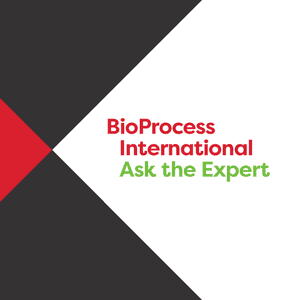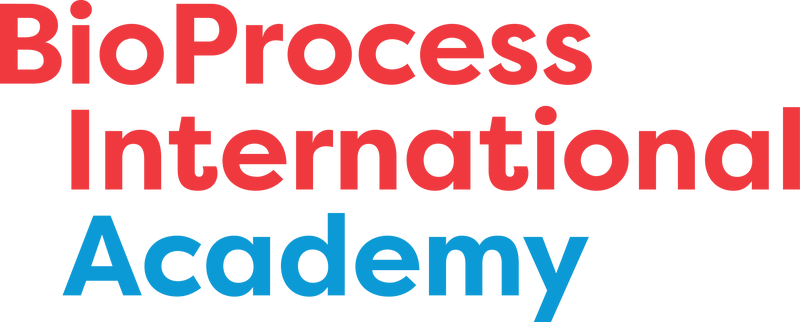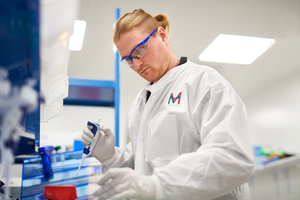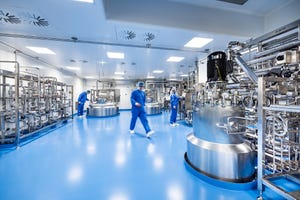- Sponsored Content
- Chromatography
BioProcess Insider Interview: Hayley Crowe, Senior Vice President, Purolite
August 21, 2023
Sponsored by Purolite
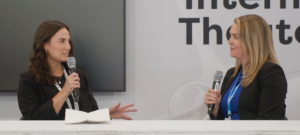
Millie Nelson, Editor, BioProcess Insider (left); Hayley Crowe, Senior Vice President, Purolite (right).
Purolite has manufactured chromatography resin technologies for over 40 years. According to Crowe, the company ventured into producing a jetted agarose resin specifically for protein purification in 2016 by combining in-house knowledge with that of experts from around the world. Purolite’s patented jetting process creates beads of uniform size. Customers benefit for several reasons: Manufacturing processes can be made faster because users don’t have to waste time disposing of particles that are too small. The uniform bead size facilitates column packing, and in continuous manufacturing, users can achieve tighter elution peaks.
Although monoclonal antibody (MAb) purification never has been an easy process, scientists have become accustomed to working with what Crowe called “vanilla MAbs.” But as modalities have changed, biotherapeutics have diverged from “vanilla MAb” formats to become more difficult to purify: e.g., ADCs, bispecific antibodies, and crystallizable fragment (Fc) binders. No single resin works for all modalities, Crowe noted, and as the biopharmaceutical industry moves into working with even more diverse molecules, users will need new resins to purify them. Innovation means matching different resins with different ligands, and that can require several protein A ligands specifically.
Purolite’s parent company, Ecolab, has experience with engineering, automation, and manufacturing to ensure supply-chain health. It has spearheaded advancements in the past 18 months by scaling up capacity in Wales and by opening a new facility in North America that connects to several manufacturing sites in the Philadelphia, PA, area. Those expansions will enable Purolite to get resins to its customers quickly and be better prepared for COVID-like disruptions in the future.
Bispecific antibodies historically have been difficult to purify and get shelved when they can’t be produced commercially. If customers can use new purification technology such as Purolite’s recently launched high-pH resin, then such therapies could become viable for commercialization. Users can decrease product aggregation and improve yield in moving toward commercialization. There are many molecules that will propel industry growth and allow life-changing treatments to reach patients.
Although Purolite plans to hire 250 people within the next five years, talent acquisition remains a serious issue throughout the industry. Ecolab has established a fully sponsored summer internship program to address that problem. Crowe hopes to see Purolite engage with a similar program in the future.
Fill out the form below to view the full interview now.
You May Also Like
